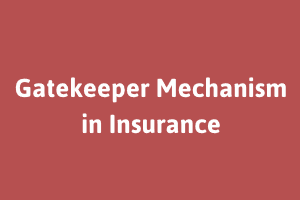A gatekeeper is a healthcare provider who is the patient’s first point of contact and determines the patient’s next level of care. Primary care physicians are frequently the healthcare system’s gatekeepers. Patients can only see specialists with a reference from a gatekeeper in many health insurance plans. A gatekeeper is responsible for the administration of the patient’s treatment under some health insurance arrangements. The gatekeeper arranges and authorizes all medical services, laboratory testing, specialty referrals, and hospitalizations.
The phrase “gatekeeper” has two definitions. The first one is used to define people’s roles within the health insurance industry, while the second is used to describe long-term care plans.
Gatekeepers in Healthcare
In recent times, the concept of a primary care physician serving as a gatekeeper to specialists and other health care, which was long considered a managed care concept in the United States, has become commonplace. Its debut was accompanied by a government-sponsored study into primary care referrals in the United Kingdom.
Many individuals believe that using gatekeeping to avoid unnecessary medical care interventions is an effective way to keep costs down. On average, primary care and related tests and diagnoses are less expensive than secondary and specialty care services. When it comes to knowing where and how to obtain specialized care, primary care physicians are considered to be better informed than their patients.
Long-Term Care Insurance
Gatekeepers aren’t persons when it comes to long-term care. Rather, these are all the conditions that must be met before a person may receive any benefits from their long-term care insurance policy.
The majority of long-term care insurance policies provide that long-term care is medically necessary due to illness or injury. As a response, many businesses undertake their own assessments of whether this requirement is reached, and they occasionally overrule patients’ physicians. Some regulations demand that the patient be unable to perform their daily tasks independently, such as cleaning, walking, dressing, and eating.
Gatekeeping has both beneficial and negative impacts on the healthcare system as well as individual patients. It is obvious that modifications are needed to allow for convenient and easy communication amongst care providers at different entrance points. A family doctor should be able to consult a specialist immediately to confirm or rule out clinical concerns, and a specialist should be able to provide the doctor with clear instructions for possible follow-ups.
If you have skills in PHP programming and you want to enhance your career in this field, a PHP certification from StudySection can help you reach your desired goals. Both beginner level and expert level PHP Certification Exams are offered by StudySection along with other programming certification exams.




